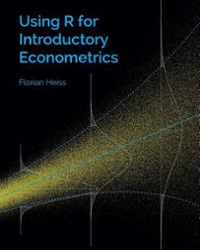Question
q1. Consider the following production chain. Gina Rinehart's mining company in Western Australia produces coal worth 20000 AUD in 2019 with no other purchased input.
q1.
Consider the following production chain. Gina Rinehart's mining company in Western Australia produces coal worth 20000 AUD in 2019 with no other purchased input. All of this output is bought by a Shanghai Steel, a Chinese firm, and using only coal as an intermediate good, it produces Steel worth 50000 AUD in 2020. All of the steel from Shanghai Steel is purchased by Holden Automobiles in Adelaide to make cars, using only imported steel as a purchased input. The total cars produced are 10 and the price in 20000 AUD in 2020. However, only 5 cars are sold in 2020. What is the contribution of this production chain to the Australian GDP in 2020?
Group of answer choices
200 000 AUD
100 000 AUD
270 000 AUD
70 000 AUD
170 000 AUD
q2.
An economy is described by the following equations:
C= 1000 +0.6(Y-T) consumption function
Ip= 1000 planned investment
G=500 government spending
NX = 100 net exports
T = 1000 taxes
What is the short-run equilibrium level of output if the potential output Y* = 5000?
Group of answer choices
2000+0.6Y
2.5
0.6
Zero
5000
q3.
If both nominal GDP and the general level of prices are falling, then:
Group of answer choices
real GDP is unaffected by change in price level
real GDP will fall if nominal GDP is falling faster than the general price level
insufficient information
real GDP will fall if nominal GDP is falling more slowly than the general price level
real GDP will rise if nominal GDP is falling faster than the general price level
q4.
Suppose the total expenditure for a market basket of goods in year 1 (the base year) is $150 billion. In year 2 the expenditure for the same market basket of goods is $200 billion. What is the CPI for the economy in year 2?
Group of answer choices
133
75
178
20
58
q5.
In the news, the claim is that the Australian economy is experiencing a contractionary output gap of 5 percent. If the Okun's law coefficient, =2, what is the unemployment gap (u-u*), where u is the unemployment rate and u* is the natural rate of unemployment:
Group of answer choices
-2%
-2.5%
3%
2.5%
-3%
Step by Step Solution
There are 3 Steps involved in it
Step: 1

Get Instant Access to Expert-Tailored Solutions
See step-by-step solutions with expert insights and AI powered tools for academic success
Step: 2

Step: 3

Ace Your Homework with AI
Get the answers you need in no time with our AI-driven, step-by-step assistance
Get Started


